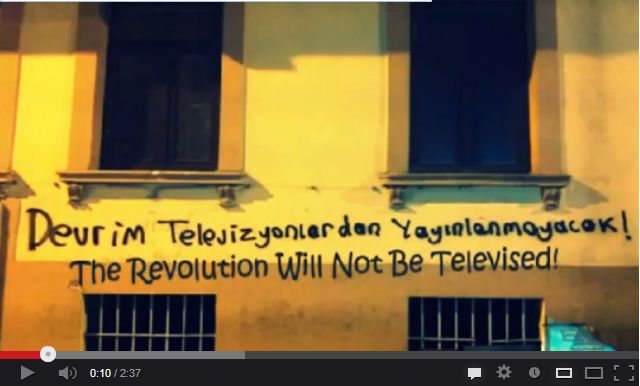What happens to the media under tremendous pressure and tight control in and of authoritarian regimes? How the boundaries on the discursive horizons of media drawn under authoritarianism? What are the implications of this for democracy? What can the media in authoritarian regimes tell us about the character of public debate and rationale under these regimes? Turkey's withdrawal from the Istanbul Convention and how this withdrawal is discussed in the media provides us with invaluable insights to discuss these questions. There is a dual rationale for choosing this case: Firstly, the way this incident took place, namely the decision of Turkey to withdraw from an international Convention overnight by a Presidential decree, demonstrates the authoritarianism in the country.
Discursive Strategies of the Pro-Government Media in Justification of Turkey’s Withdrawal from the Istanbul Convention
İnan Özdemir Taştan (EUME Fellow 2021-23), Chair: Sara Mourad (American University of Beirut / EUME Fellow 2021/22)
Forum Transregionale Studien, Wallotstr. 14, 14193 Berlin

It also shows the role and importance of gender issues for authoritarian governments to consolidate its core religious and conservative groups. Lack of a strong mobilization against the Istanbul Convention before Erdogan’s decision adds another interesting dimension to this case for a media analysis. There are numerous cases in which pro-government media had a significant role in mobilizing government supporters in the past. A distinctive feature of the Istanbul Convention debate is that this time the media did not or could not have a role as a facilitator of an already growing pro-Government mobilization. On the contrary, the media had a role of legitimizing the decision of Erdogan on an issue about which the government had not been able to create a significant mobilization or support before and even after the decision. In this seminar İnan Özdemir Taştan focuses on TV debates and analyzes the discursive strategies of pro-government media to legitimize the withdrawal when the authoritarian government lost its capacity to mobilize people.
İnan Özdemir Taştan received her Ph.D. in 2013 from Ankara University Institute of Social Sciences, writing her thesis on the rhetoric of radical left movements in Turkey in the 1970s. She worked as a research assistant at Ankara University Communication faculty between 2002 and 2017, where she offered courses on public relations, political communication, and research methods. Between 2018 and 2020 she worked at different research projects in Turkey. In 2020-21 she was Barbro Klein Fellow at Swedish Collegium for Advanced Study. Her research interests include political communication, social movements, and media studies. Her recent publications have focused mainly on the electoral speeches of political leaders and their perception of democracy, the increasing religionization of politics in Turkey, political debates on Syrian immigration, radical media, and resistance under AKP governments. She has published several papers and book chapters. Moreover, she is the co-author of the books Seçimlik Demokrasi (2018) (Voting Democracy) and Vaatten Duaya, Anayasadan Kur'an'a: Siyasette Dinselleşme (2019) (From Promise to Prayer, Constitution to Koran: Religionization of Politics). She sits on the editorial board of the journal of Kültür ve İletişim (culture & communication) and served as the editor from 2018 to 2020. From 2021 to 2023, she is a EUME Fellow at the Forum Transregionale Studien.
